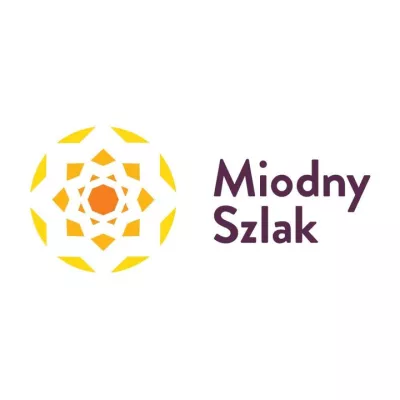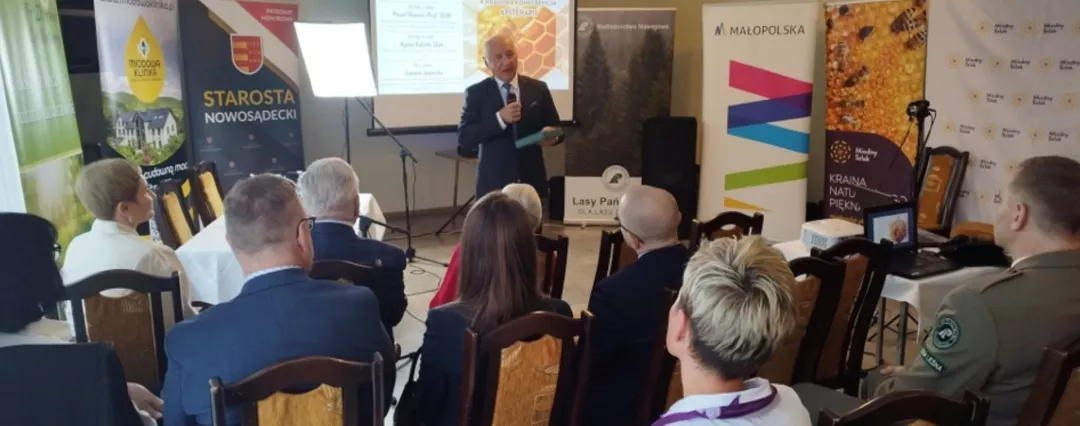General information
RDP Priority
- P6. Social inclusion and local development
RDP Focus Area
- 6B: Local development
RDP Measure
- M19: LEADER/CLLD
Beneficiary type
- Non-governmental organisation
Summary
The project was promoted by the foundation ‘Po Zdrowie Do Natury’ to combat the negative effects of the COVID-19 crisis and to enhance competencies and skills during this period of social isolation in the region of Sądecki in Poland.
A number of online training courses and workshops were developed with the aim of engaging people and improving their well-being while building increased competencies. Course development and delivery involved close collaboration with experts and young people. A range of topics was addressed focusing on locally grown natural products, such as organic fruit and vegetables, honey and natural cleaning products. The video material was broadcast via the foundation’s TV channel on YouTube and social media. Creativity, skills and lasting networking benefits were achieved while supporting the social integration and enhancement of competencies through project activity. The training focused on appreciating and producing the use of locally grown natural, healthy products.
Results
- Four online training events and a range of lectures and workshops were produced and disseminated. The material was available at any time, accessible free of charge and adapted for people with disabilities.
- The online reach of the video productions was satisfactory. For example, the audience for the broadcast on apitherapy reached 815 people, healthy tasty treats for kids attracted 475 views, and herbal cleaning products engaged 289 views.

Promoter
Fundacja Po Zdrowie Do Natury
Funding
RDP support: 12 500 (EUR)
EAFRD: 7 954 (EUR)
National/Regional: 4 546 (EUR)
Resources
Documents
Context
The ‘Po Zdrowie do Natury’ (health to nature) Foundation was established in 2016 as a growing global centre for apitherapy in the village of Kamianna, Poland. After three years, the foundation created the local brand ‘Miodny Szlak’ (honey trail) in 2019. The mission of the brand is to promote the local tradition, rich culture and history of the Sądecki region. Its main focus is on local food and utility products made by farmers, herbalists, beekeepers and entrepreneurs.
The 'Po Zdrowie do Natury' Foundation also aimed to develop good practices in equality matters and create new opportunities for rural residents to access education.
The challenges of the COVID-19 crisis prompted the foundation to support the rural population of its area. The idea was to organise a series of online educational projects through the existing ‘Miodny Szlak’ TV channel on YouTube. This would not only enhance the competencies and skills of rural residents but also help them better deal with their social isolation and worries at the time.
Objectives
The main objective of the project was to encourage rural residents (including ethnic minorities, young people and women) in the Nowy Sącz county to participate in actions aimed at social inclusion and capacity building as part of the foundation’s initiative ‘Miodny Szlak’.
The project sought to upgrade the skills of rural communities, including farmers growing organic fruit and vegetables, which are cultivated without artificial fertilisers and pesticides and used for culinary purposes.
Particularly during the COVID-19 crisis, it was important that the project would help raise public awareness of health and strengthen the overall immunity of people in times of isolation by promoting collaboration, community spirit and altruistic attitudes.
Additionally, the project placed a distinct emphasis on disseminating knowledge of apitherapy and methods of building resilience using natural bee products.
Activities
The project involved the following activities:
- Specifying all organisational and promotional aspects of the educational events and procuring relevant services. This involved ascertaining the costs of hiring appropriate venues, fees for lecturers/speakers, costs of materials and products needed for the workshops, photographic documentation, filming, editing, posting the films on the ‘Miodny Szlak’ TV channel on YouTube and promoting the footage on YouTube, websites and social media.
- Promoting the project and reaching stakeholders to encourage them to be involved in project implementation. In cooperation with specialists in agriculture, beekeeping, herbalism and dietetics, a series of online trainings were organised. Topics included apitherapy, building up immunity with natural bee products, supporting agriculture without artificial fertilisers, herbalism and household cleaning products.
- Developing and recording a series of four online training courses. This included the following courses: (a) growing fruit and vegetables without chemicals; (b) honey and apitherapy; (c) chemical-free household cleaning products; and (d) preparation of meals based on organic fruit and vegetables.
- Promoting training on the website and on social media, such as Facebook, to attract a wider range of users and increase the accessibility of the training.
Main results
The main results achieved by the project included:
- Four online training events and a range of lectures and workshops were produced and transmitted via the foundation’s communication channel ‘Miodny TV’ on YouTube ‘MiodnySzlakTV’ and on the website ‘Miodny TV | Miodny Szlak’. The material was available at any time, accessible free of charge and adapted for people with disabilities.
- The video productions' online reach was satisfactory. For example, the audience for the broadcast on apitherapy reached 815, healthy tasty treats for kids attracted 475 views and herbal cleaning products engaged 289 views.
- The project worked with young people who actively participated in making the educational videos. This involvement positively impacted their social integration.
- As a result of the project, networking opportunities were created. New contacts were made electronically (e.g. online and social media) and through integration meetings organised by the foundation. For example, the organised organic food fairs became not only a meeting place for local people but also a place to exchange views among a wide range of professionals. This included experienced farmers, beekeepers and specialists in forestry and agriculture as well as in sanitary, epidemiological and environmental protection matters.
Key lessons
- When implementing a similar project, care should be taken to respond to the needs of the local community and collaborate with them. The people, their skills and ideas are the potential and spark for action.
- The videos improved the visibility of the ‘Miodny Szlak’ brand on the internet. Two months of professional work were required for script writing, discussions, recording and editing to create the video. The sound production required half of the budget for the video because the project team considered the needs of people with disabilities by optimising the recording without background noise.
- The project team found working with people the most interesting. They learned how to cooperate, organise their working time, plan their tasks and prepare the necessary online broadcasts for the project. They now know what to pay attention to, what to avoid and how to share their experiences with others.
The ‘Miodny Szlak’ includes telling stories by local guides about the culture, traditions and turbulent history of this place, which echo in the mountains.
